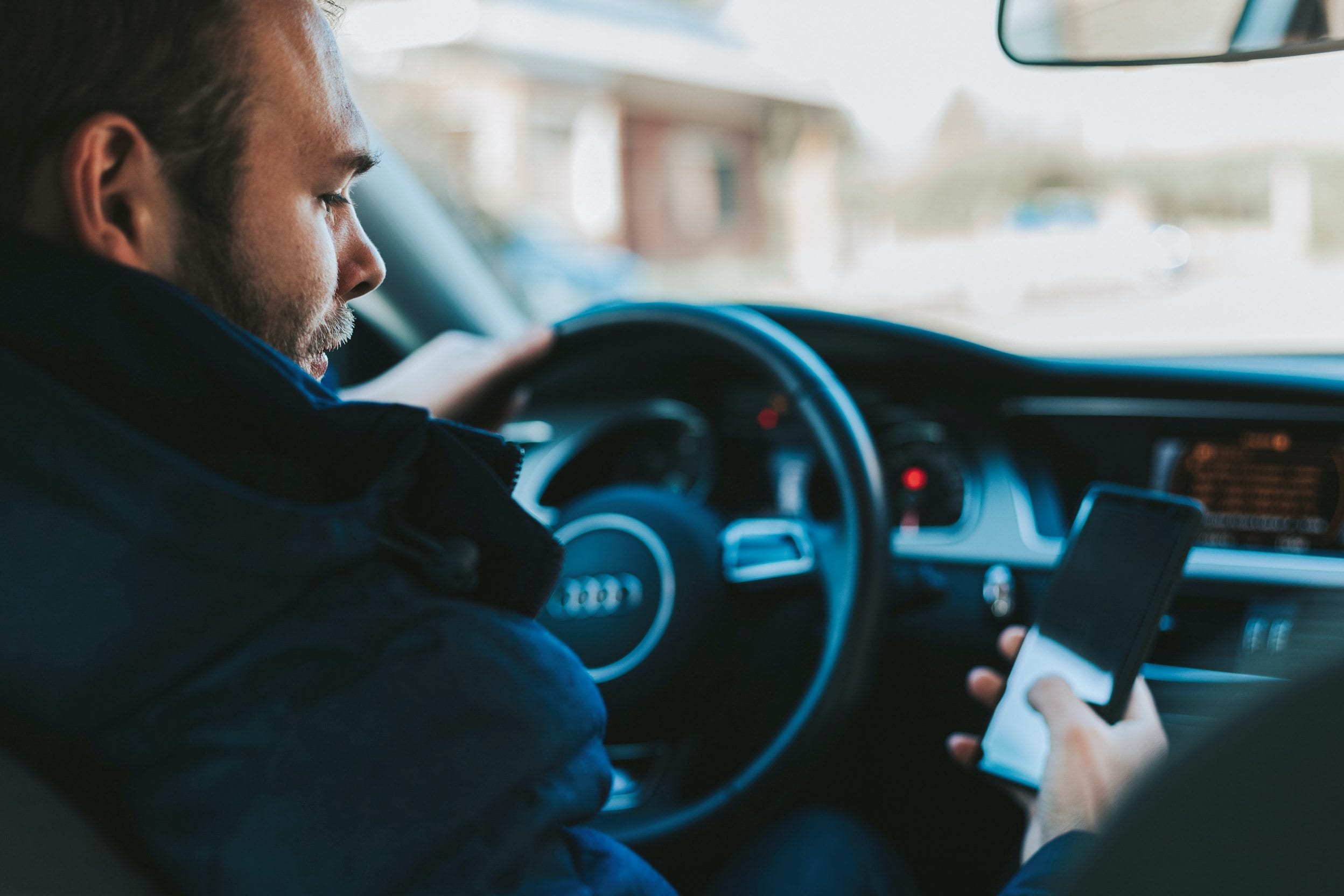
Distracted driving is a huge problem everywhere. These days, people have learned to multitask, which is wise if they’re doing it safely, but very dangerous if they’re behind the wheel.
While driving, they may be talking or texting on their phone, fiddling with the radio, drinking a coffee, looking at directions, eating a sandwich or trying to fetch something that fell on the floor. Drivers who are younger and grew up relying on cell phones for everything may be more susceptible to distracted driving. Additionally, noisy children in the backseat could distract parents and lead to an accident.
According to the National Highway Traffic Safety Administration, distracted driving caused 2,841 deaths in the United States in 2018. Among those who were killed in these accidents were 1,730 drivers, 605 passengers, 400 pedestrians and 77 bicyclists.
Learning about distracted driving – as well as what to do if you’re in a distracted driving accident – can ensure you stay safe on the road and get help if you were involved a collision yourself.
Georgia’s Laws on Distracted Driving
Georgia law states, “Distracted driving includes performing any activity while driving that could distract you from safely operating your vehicle. This can include talking hands-free on a cell phone, texting, checking the radio and much more.”
Distracted driving is pretty common in Georgia. In the first six months after putting its hand-free cell phone requirement into place, 8,036 drivers received citations for using handheld cell phones instead. Additionally, in one survey, only 45% of Georgians stated that they always obeyed Georgia’s distracted driving law.
The only times you may be permitted to use your handheld device behind the wheel include when you’re looking at directions (such as on Waze or Google Maps) or you’re reporting a crime, emergency or traffic accident. First responders and employees who work for utility service providers and are on their way to deal with an emergency are exempt from these laws.
What Can Happen as a Result of a Distracted Driving Accident?
If you get into a distracted driving accident, at the very least, there may be minor damage to your car. But even if the distracted driver was going the speed limit and hit into the back of your car, you could still feel whiplash and body pain following the accident.
If the driver was going speeding and couldn’t brake in time or just didn’t see you, then you may experience catastrophic injuries like a head injury, paralysis or a traumatic brain injury. These types of injuries can affect you for the rest of your life and greatly alter how you perform in your day to day.
You may have to quit your job, spend a lot of time in the hospital, get multiple surgeries, go for physical therapy and not be able to interact with your partner and children due to your injuries. Additionally, you may have to pay thousands or even millions of dollars for your treatment and everything that comes with it, like modifying your home and buying medical equipment.
No matter what type of injury you had, there may be damage to your car as well. You might just have to replace the fender or get a new tire, or you could potentially have to get another new car. That could also cost you many thousands of dollars, and at the end of the day, your insurance premiums may go up.
Proving Distracted Driving
If you get into a distracted driving accident, it could be hard to prove it. You’ll have to rely on what you saw, any witness testimonies you collected, footage from traffic cameras and the pictures you took of the scene of the accident. For example, maybe a distracted driver sped through a red light without stopping or you took a photo of their cell phone on the seat of their car instead of in a holder on the dashboard right after the accident occurred.
Police officers may look at someone’s phone to determine if they were texting or calling someone while driving, or phone records could be collected. Vehicle data could also provide some answers. For example, if a driver was distracted, maybe they sped up in a school zone because they were too preoccupied to notice a slower speed limit sign.
Hiring a Personal Injury Lawyer for Help
Does collecting evidence, medical records and police reports sound overwhelming? Are you too shaken up by the accident to even think about opening up a claim against the distracted driver? Don’t worry: A personal injury lawyer can help.
While you’re physically and emotionally recovering from your accident, you can hire an experienced personal injury lawyer to take on your case. They will help you get treatment, put together essential evidence and documents and file a claim against the other driver and their insurance company.
You’ll need to have an initial meeting with your lawyer to go over all the details, but after that, they’ll take care of things for you. They may follow up for clarification and they’ll be in touch when updates come in, but other than that, you can be rest assured that your case is moving forward.
Finding the Right Personal Injury Lawyer
You’ll know you’ve found the ideal personal injury lawyer if they have extensive experience with these types of cases and they are communicative about your case. Now is the time to make sure you are feeling as physically and emotionally healthy as possible, so leave it to your personal injury lawyer to handle your case for you.
If you’ve gotten into a distracted driving accident in Georgia, you may be entitled to compensation. To find out what a personal injury lawyer can do for you, contact the Atlanta Personal Injury Lawyer Winston Briggs today.
